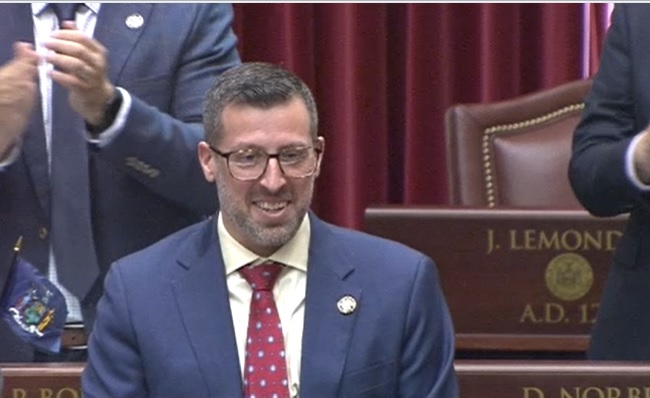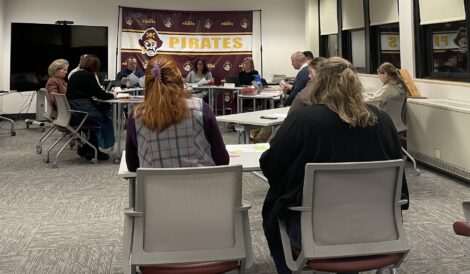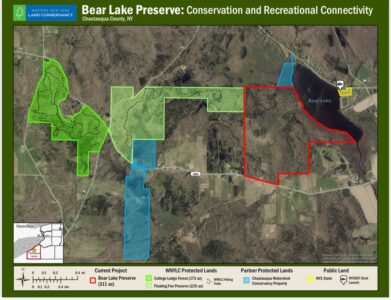Hochul Signs County Occupancy Tax Bills

Assemblyman Andrew Molitor, R-Westfield, is all smiles after his first bill was approved by the state Assembly in June. The legislation, A.7251, was one of two bills to extend the county’s occupancy tax.
Gov. Kathy Hochul has signed off on two pieces of legislation that will keep Chautauqua County’s occupancy tax the same for another two years.
Hochul signed the bills (A.7251/S.7149 and A.7256/S.7195) on Aug. 7 along with a host of other similar bills for localities throughout the state.
Assembly members approved A.7251 by a 120-26 vote. There was no debate.
“The bill is passed. Congratulations, Mr. Molitor, on your first bill,” said Assemblywoman Pamela Hunter, D-Syracuse and speaker pro tempore.
Hunter’s announcement prompted a round of applause from Molitor’s fellow Assembly members.
A.7256 was approved 112-25 in the Assembly. Senate approval for S.7149 and S.7195 were by identical 51-8 votes.
Passage of the bills came with less headaches at the state level than it did locally.
Unlike past years, the Chautauqua County Legislature holds a vote requesting its state representatives write bills reauthorizing the bed tax and then a second county legislature vote takes place saying they support the bills that have been introduced. County officials said this year that Molitor and Borrello offered to create the bills, so the legislature didn’t need to have the first vote. Legislator Fred Larson, D-Jamestown, disagreed since the last time the legislation was written half of the 3% bed tax was allocated to the Chautauqua County Visitor’s Bureau. The 2023 extension bill also required one-half of the money in the Lake Management and Enhancement Fund be used for control, treatment or removal of invasive and nuisance weeds, reduction of harmful algal blooms or shoreline cleanup. Remaining money can be used for fishing, boating or recreational activities, reduction of watershed erosion, sedimentation and nutrient loading or similar activities.
According to the bill’s legislative justification, the bill is designed to make sure half of the lake management and enhancement funds are used for activities performed by the Chautauqua Lake Association, Chautauqua Lake Partnership, Cassadaga Lakes Association, Findley Lake Watershed Foundation, Bear Lake Association, and for Mobitrac and shoreline cleanup. The money is not supposed to be used for third-party staff expenses for project evaluation, supervision or related management or administrative expenses, such as the county watershed coordinator or the Chautauqua Lake & Watershed Management Alliance. That language remains in the extension bills.
Larson, who is a board member of the Chautauqua County Visitors Bureau, said he has nothing against the organization, but believes they should be required to go before the county legislature when requesting occupancy tax funds.
“For almost 20 years nobody was entitled to get money that this legislature didn’t vote on and all of a sudden we got mandated to hand over half the money, regardless of how much it might be, to a private organization,” he said.
When the time came to vote, both Larson and Legislator Tom Nelson, D-Jamestown, voted against it. They were the only two Democratic legislators in attendance at the April legislature meeting.




